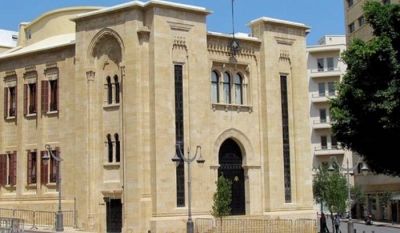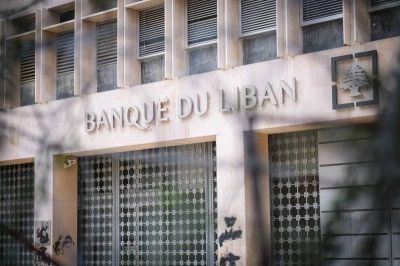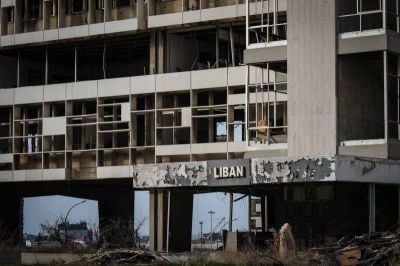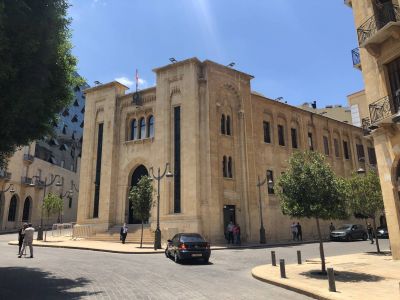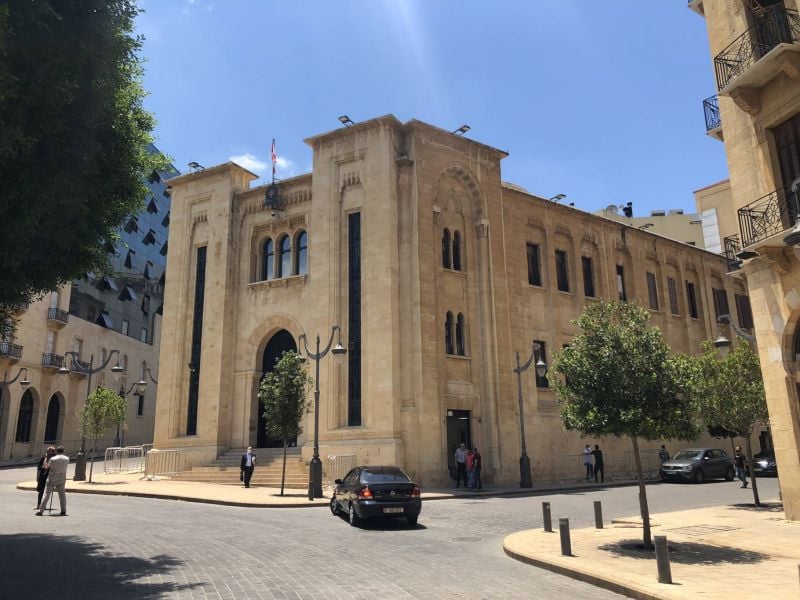
The Lebanese Parliament in Beirut. (Credit : J.R.B.)
While all it took was for a minister to announce a Whatsapp tax of $6 per month to provoke the protest movement of Oct. 17, 2019, the street and Parliament have remained surprisingly quiet so far despite the entry into force on Nov. 15 of a 2022 budget that is much heavier on taxpayers.
A group of 11 MPs and former MP Ramy Finge put a stop to this sluggishness on Monday by filing an appeal against the budget before the Constitutional Council just in time for the deadline of 10 working days to do so.
The court now has two weeks to rule, MP Paula Yacoubian (Forces of Change/Beirut I) told L’Orient-Le Jour. She added that the appeal does not de facto suspend implementation of the 2022 budget, which includes several measures increasing taxation, some of which are applied retroactively. Though the text came into force 10 and a half months into 2022, these retroactive measures amplify the impact on taxpayers, whose deposits are still blocked by the banking restrictions illegally put in place since the beginning of the crisis three years ago.
This delay in the 2022 budget’s constitutional deadline, which says a budget must be adopted by the end of January in the year it will be implemented, is one of the flaws put forward as grounds for the appeal on Monday.
The MPs also pointed out that the budget was adopted without the previous year's accounts having been approved by Parliament, as required by Article 87 of the constitution. Lebanon has not respected this procedure for years and has adopted all its last budgets with delay. The Constitutional Council has not previously been bothered by this, even when it has been asked to do so.
To increase the chances of success, the MPs have raised more than a dozen other grievances, such as the violation of Article 84, which prohibits Parliament from “raising the appropriations proposed in the draft budget (...) either by means of an amendment or by means of independent proposals” during the discussions on the budget.
Apart from questions of constitutionality, this budget has already been criticized, notably by the World Bank, for its fiscal inequity, including “over-reliance on revenues from progressive taxes” World Bank economist Dima Krayem said during a recent conference at the American University of Beirut.
Private sector concerns
The authorities, for their part, are defending a budget whose primary purpose seems to be to finance an increase in the salaries of an oversized civil service.
Last weekend, the Director General of Finance, Mohamed Louay Hajj Chehade, justified the retroactive nature of certain tax measures by pointing out to local media that Parliament had delayed voting on the budget. This could be a difficult argument to accept, given that the Ministry of Finance itself did not send the draft budget to the Council of Ministers until Jan.2022, well beyond the deadline stipulated by the constitution.
The adoption of the 2022 budget is one of the preconditions imposed by the International Monetary Fund IMF for releasing financial assistance to Lebanon. But its adoption must be part of a package of measures to put Lebanon on the road to reform, which are far from being met.
On the private sector side, worries abound as the Ministry of Finance last week began issuing decisions on fiscal measures contained in the budget.
The Economic Organizations, an employers’ organization headed by former minister Mohammad Choucair, say they defer to the Council’s decision and dispute the infringement of the constitution.
The president of the General Confederation of Workers in Lebanon, Bechara Asmar, and the president of the Order of Editors, Joseph al-Qosaifi, also met yesterday to denounce the adoption of the new “customs dollar,” which is the exchange rate used to calculate the customs duties in lira from the prices of imported goods in dollars. So far, the rate has been set at the official rate of LL1,507.5 to the dollar, but it is set to rise to LL15,000 on Thursday.
The two unionists appear to fear that the increase will further depress the lira in the market, where the exchange rate currently hovers at around LL40,000 to the dollar, and are calling for a delay.
This article was originally published in French in L'Orient-Le Jour.
